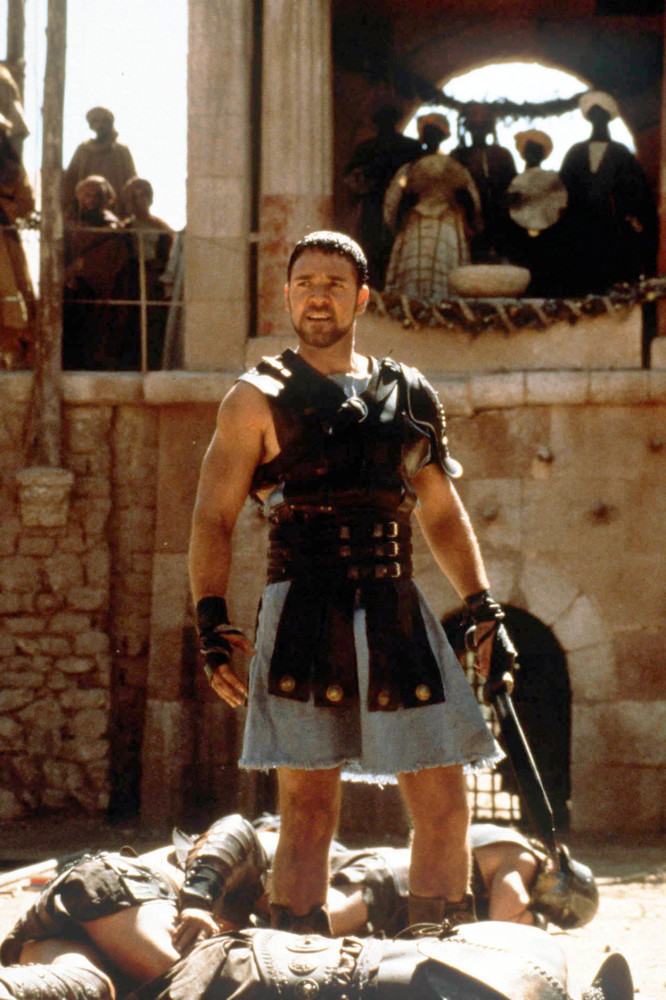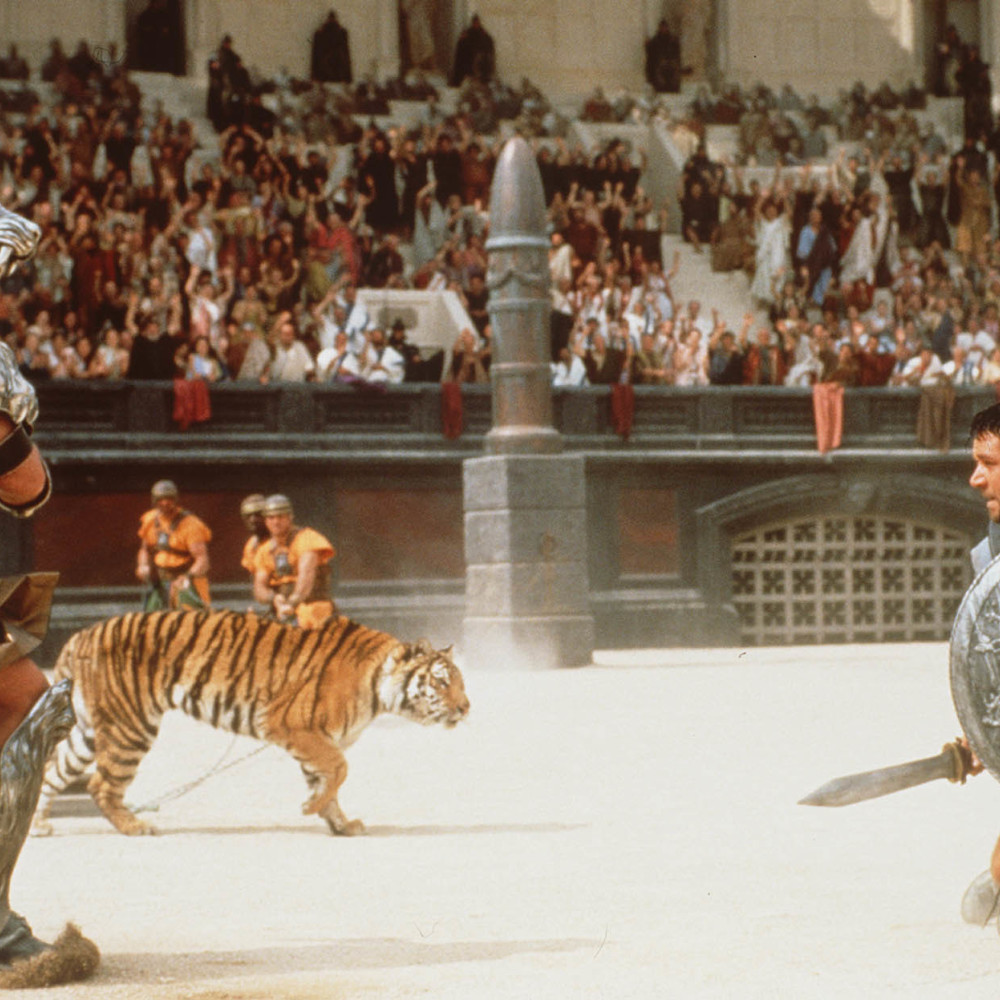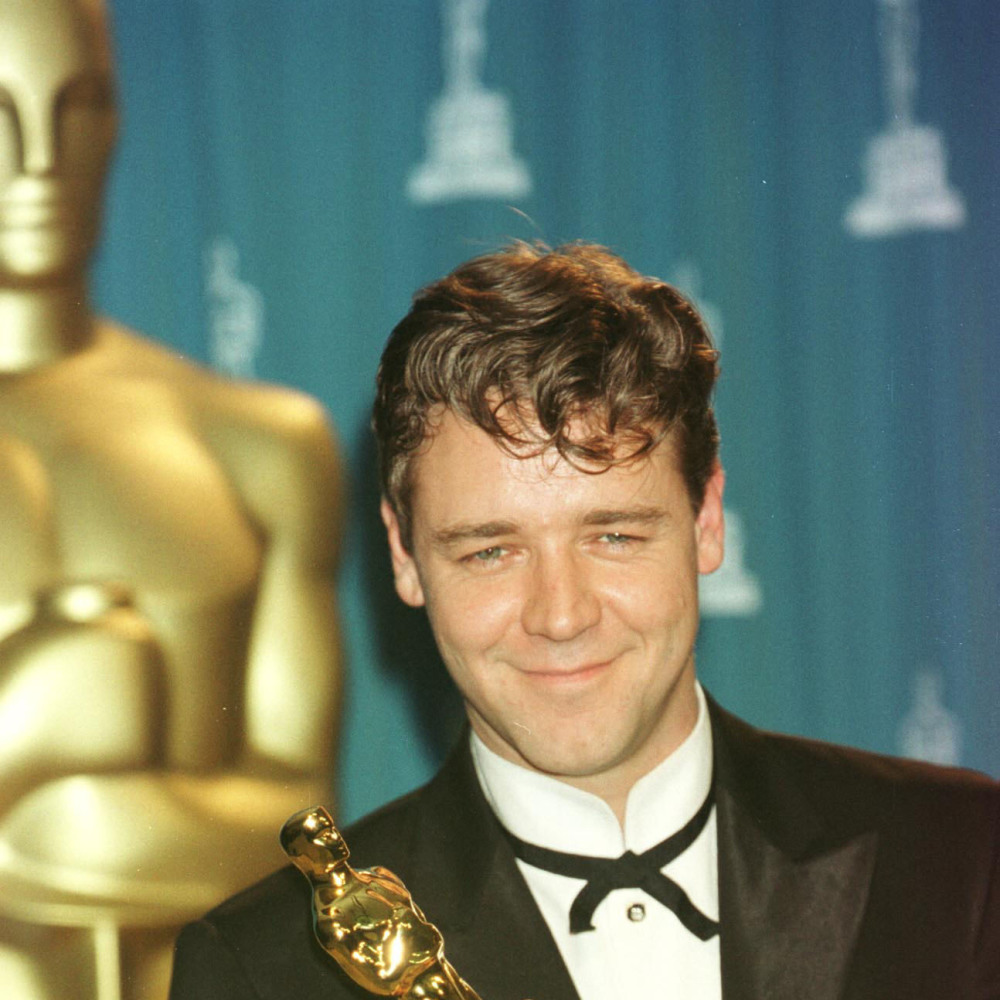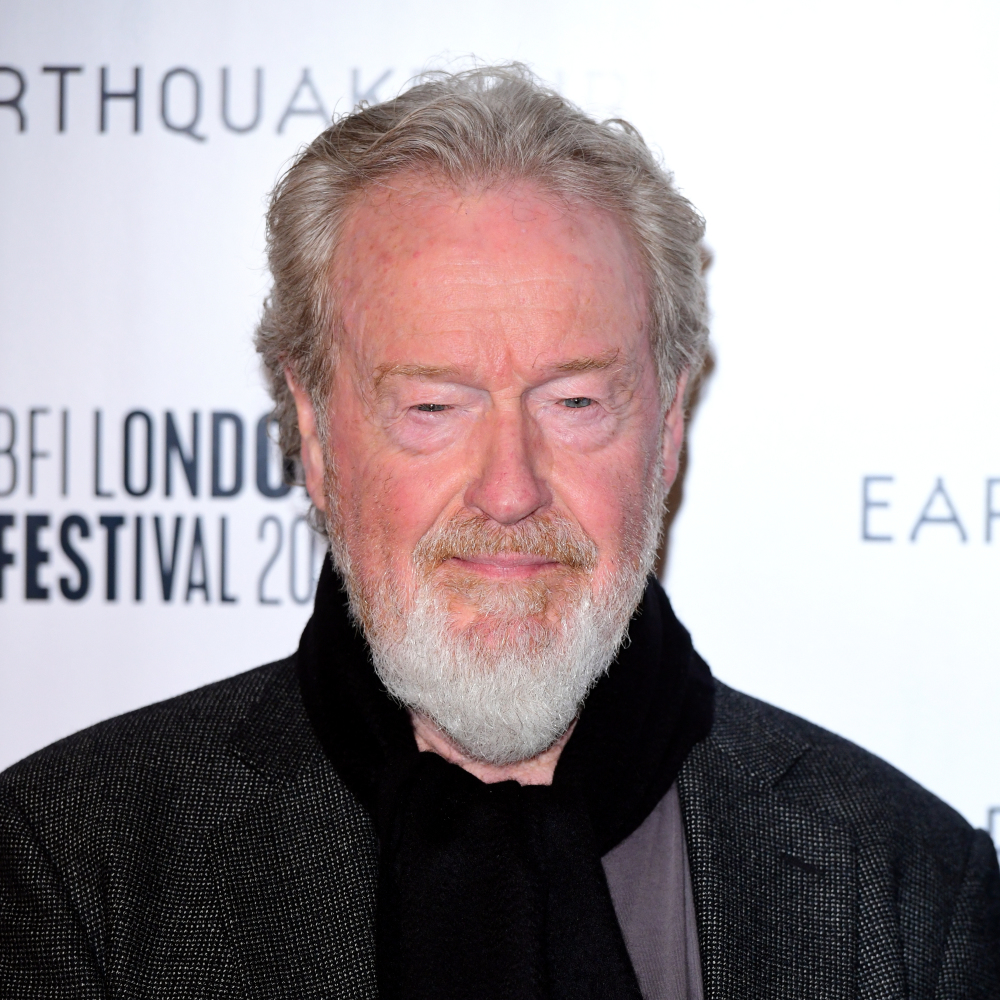Gladiator has been entertaining audiences for 20 years.

No place like Rome: The making of Gladiator XX years on
Sir Ridley Scott's epic tale of power, betrayal and revenge single-handedly revived the swords and sandals genre in Hollywood, paving the way for films including Troy and 300.
Russell Crowe cemented his place as a Hollywood leading man with his portrayal of general Maximus Decimus Meridius, while a stellar supporting cast included the late Oliver Reed, a young Joaquin Phoenix and a vintage Richard Harris.

But Gladiator, which arrived in UK cinemas 20 years ago this week and grossed 457 million dollars at the global box office, was almost a very different film, as screenwriter and producer David Franzoni tells the PA news agency, recalling how the cast, plot and even the famous ending could have been very different.
The film begins with a battle on the rough edges of the Roman Empire, with Crowe's all-conquering general Maximus leading his men to victory over the Germanic hordes.
As reward, Harris's ailing emperor Marcus Aurelius offers him the keys to the kingdom so he can restore the Roman Republic.
However, Aurelius's jealous son Commodus, played by Phoenix, murders his father before demanding Maximus's loyalty.
The general refuses, leading the new emperor to order his murder and that of the wife and son he adores. The hero survives a botched execution before being sold into slavery, setting him on course for a return to Rome and a final showdown with Commodus.
Gladiator was the brainchild of Franzoni, who first thought of the idea while riding a motorcycle across Europe after dropping out of graduate school.
He became fascinated with the ancient arenas he saw throughout the continent and further inspiration came when he traded books with an Australian backpacker.
In exchange for a work on the Irish War of Independence, Franzoni received 1958's Those About To Die, a book about gladiators in ancient Rome. Then, while in Baghdad, Franzoni said Maximus came to him "out of thin air".
After working with revered director Steven Spielberg on 1997 slavery drama Amistad, Franzoni got to work on what would become Gladiator.

While on the surface Gladiator would appear to share a lineage with other sword and sandals films, such as 1959's Ben Hur and 1960's Spartacus, Franzoni revealed the actual influences were classic movies born out of the 1960s.
They include Easy Rider, Vanishing Point and One Flew Over The Cuckoo's Nest, which all feature a hero up against an enemy impossible to overcome. However, in Gladiator's case, the studio initially balked at the idea of its hero being killed.
The famous final scene of a wounded Maximus getting revenge on Commodus before joining his wife and son in the afterlife almost never happened, Franzoni revealed.
"I don't know what the hell they thought he was going to do, go open a burrito stand or something," he said. "You don't kill the emperor and then walk out of Rome."
One alternative to Maximus's death was having his legion return to assault the city and free him from jail. Eventually, Franzoni won the argument and the gladiator's fate was sealed.
Gladiator features an array of stars. Spielberg wanted Crowe from early on, with the new Zealand-born actor fresh from an acclaimed turn in Michael Mann's 1999 drama The Insider.
However, Crowe, who would go on to win the best actor Oscar for Gladiator, was not always so sure the film would be a success. Franzoni explained the star was unsettled by an ever-changing script, which the writer pins on "one particular executive having bad ideas".

All the while, as Gladiator remained a nebulous collection of ideas rather than solid project, producers were being "mocked" for attempting to make a film about ancient Rome.
Such was the lack of confidence in the picture, Spielberg's attempts to keep it under wraps for fear of being copied proved useless. Franzoni said: "Steven wanted to have a codename for the movie called the 'Hotrod Project,' because he was afraid if people heard we were doing a movie on a gladiator they could just steal it. As it turned out, everybody thought we were nuts. So nobody was going to steal it."
When the film finally came together, Crowe, according to Franzoni, was sure it was going to wreck his career. The writer had no such concerns, having seen the finished product.
And Crowe's fears evaporated after he saw Gladiator for the first time, accompanied to a screening by Mann. Franzoni said: "So Russell arrived, just angry already. He knew he was going to have to kill everybody after the movie was over.
"Michael Mann, who has unfailing antenna, he could detect that everybody else was really happy. And we all couldn't be that stupid. When it was over Russell was literally, I'm not making this up, jumping up and down, clapping his hands like a little kid. He could not believe how good the movie was."
Reed never got to see the film. The British actor known for his macho image and hard-drinking lifestyle died during filming, suffering a heart attack in Malta at the age of 61. Some of his role was digitised.
His portrayal of Proximo, the grizzled veteran gladiator who acts as Maximus's mentor, was widely acclaimed and he earned a posthumous Bafta nomination for best supporting actor.
Come Hollywood's biggest night, Gladiator was up for 12 Academy Awards, winning five. They included best picture, best actor for Crowe, best visual effects, best costume design and best sound mixing.
Reflecting on Gladiator two decades on and its 1960s influence, Franzoni said: "It's often said that all of Western philosophy is nothing but a footnote to Plato. And I believe that all of Western society, and I think Eastern society today, is nothing but a footnote to the sixties."

